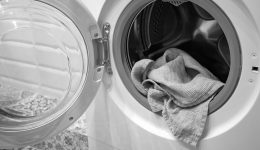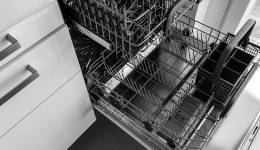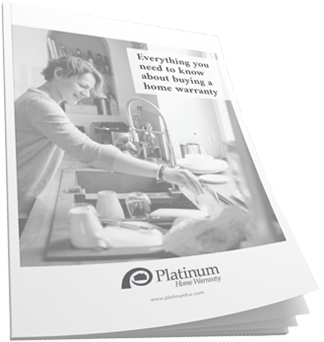New Online Options Coming in April Learn More

How to Prevent Plumbing Blockages
As a homeowner, there are few things more frustrating than a clogged pipe. Clogs are difficult to assess, hard to unclog and may even require the assistance of a plumber to restore proper flow through pipes. And, in the worst of cases, clogged plumbing can lead to major backups that cause costly damage. Plumbing maintenance is important and by taking care of your pipes each day you can prevent clogs from ever occurring in the first place. Follow the tips below to keep your plumbing in top shape and avoid frustrating clogs. And, an additional way to have peace of mind when it comes to plumbing issues is to purchase a home warranty to protect yourself in case an emergency does arise.
Skip the Chemicals
Chemical-filled drain cleaning products are not necessary when it comes to maintaining your plumbing. Common household items can be used to keep your pipes clean and clear rather than chemical products that are more likely to damage pipes than do any good. All you will need is baking soda and vinegar. First, pour 1/4 cup of baking soda down the drain. Next, pour 1 cup of white vinegar down the drain and allow it to sit in the drain for 30 minutes. After 30 minutes, rinse the drain with boiling water. The baking soda and vinegar will loosen things that are stuck in the drain and allow them to be rinsed away rather than cause clogs from buildup.
Be Careful What You Put Down the Drain
Just because it can fit in the drain does not mean it should go in the drain. Only biodegradable things should go in the drain and even then, not all biodegradable things should go in the drain. In the bathroom, avoid letting things like debris and hair enter plumbing because over time they will build up and cause clogs. Suddenly, you will notice a slow drain and that is the first symptom of a larger, growing problem. In the kitchen, the worst thing you can do is pour cooking grease down the drain. Cooking grease while hot is in a liquid form but once it cools, it will solidify. As it solidifies, it will latch onto debris in the plumbing and form problematic clogs. Egg shells and citrus peels are good to put down the drain as they act like little scouring agents to help keep the blades clean. Be sure to run the garbage disposal in order to chop up the pieces small enough as to not pose a problem for plumbing. Avoid things that are fibrous because they will lead to clogs as well. Always run the garbage disposal with cold water, rather than hot, because it will help everything stay solidified and get chopped up smaller and then rinsed down the drain. When at all possible, try to only put water down the drain and it will help keeps things running as smooth as possible.
Clean Drain and Trap Immediately
If you see a slow drain, do not ignore it. The problem will not magically go away, it will only get worse. Be sure to contact your home warranty company right away so they can send a qualified technician out to help clear the line before you end up with a costly backup.
 Click Here To Call Us
Click Here To Call Us

 By Platinum Team
By Platinum Team 




